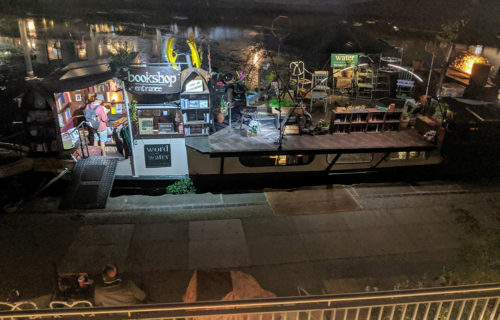August 2019 reading round-up

Oh dear, I bought far more books than I read this month. Too many great bookshops and publishers, too much of my time filled with stuff other than reading. Such as celebrating mine and Tim’s 17th anniversary with an awesome weekend in London, a few minutes’ walk from the British Library and Word on the Water. Or a trip to the giant secondhand bookshop Bookbarn. Or a night at the theatre to see the Malory Towers musical, which faithfully reproduces the tone and feel of the books (by which I mean it was a bit twee but still enjoyable).
I did also lose some time this month to being unwell, of the head too foggy to read variety. It always happens during summer. I try to take plenty of precautions but lupus will find a way.
I am currently halfway through two books, so hopefully my September list will look a little healthier. How was your August?
Books read
The Mabinogion translated from Middle Welsh by Lady Charlotte Guest
The UK entry for my EU Reading Challenge is this 19th century translation of a collection of Welsh myths and legends that were first recorded in the 15th century but are probably older still. It’s all knights and chivalry and magic, which meant I loved the storylines but I found the language a bit laboured.
Here Be Dragons by Sharon Bolton
This is another novella in the Lacey Flint crime series, this time set after book 4, A Dark and Twisted Tide. It was published in 2016, more than two years after the previous entry in the series, and feels like a wrapping up for these characters. It tells the story of DI Mark Joesbury’s undercover case, which was happening during the events of A Dark and Twisted Tide. I quite enjoyed this, though it did feel a little rushed. Worth seeking out if you’re a Lacey Flint fan.
One Part Woman by Perumal Murugan
This novel is set in early 20th century India, focusing on a couple who are farmers in a rural area, steeped in religion and superstition. Kali and Ponna have been married for 12 years. They love each other and their little corner of Tamil Nadu, but their inability to conceive a child has come to overwhelm everything else. It’s a fascinating, simply told tale.
Death the Barber by William Carlos Williams
The back cover of this Penguin mini book of poetry describes it as “deceptively simple” and I’m sure if I studied it in close detail I would see the deeper layers. But I must admit that on first read I could only see the simple surface and I wasn’t compelled by it. I should probably read it again.